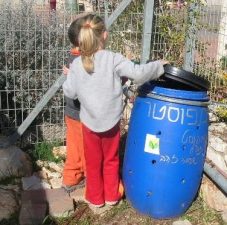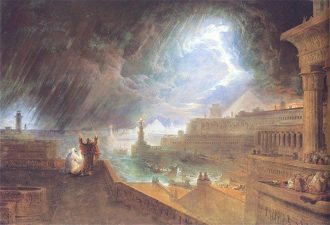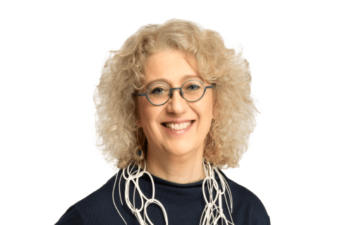 Israelis discuss the problem of getting nuclear neighbors.
Israelis discuss the problem of getting nuclear neighbors.
In a small region like the Middle East, a single country’s decision to build nuclear power can easily spill over borders.
At a panel last Monday, Israeli energy experts spoke on the risks and benefits of nuclear power, noting that even if Israel avoided the risks of nuclear, the country would have to shoulder the burden should a neighboring country choose to develop nuclear power. Israel’s nuclear energy program has been “in a state of ambiguity” for years due mostly to security, human health and environmental concerns.
Indeed, the recent October earthquake in Turkey caused that country to reconsider its nuclear policy. Just days after the disaster, news agency dongA reported that the country would likely stall plans for a new nuclear power plant in the Sinop region, 800 kilometers northwest of the earthquake epicenter. But with time, Turkey and several other countries exhaled and moved ahead with various nuclear construction projects as planned.
In Israel, leading energy experts have been hesitant to call of nuclear plants. Just days after the Fukushima disaster in Japan, Israel hosted the Negev Conference in Israel’s southernmost city of Eilat.
“Israel should build a nuclear power station, and it must be made to be safe. Hasty decisions should not be made because of what is happening in Japan,” Yiftach Ron-Tal, chairman of the Israel Electric Company, told the conference attendees at the time.
Dr. Stilian Gelberg, of the Environmental Protection Ministry’s radiation department was part of Monday’s panel, titled “Nuclear Energy in Israel – Chance or Risk?,” which took place at the Society for the Protection of Nature’s Jerusalem Environment and Nature Conference at the International Convention Center in Binyanei Hauma.
He said Israel’s neighbors would likely build nuclear whether or not Israel chose to do so and Israel would therefore be hit with the consequences of the disaster if something were to happen to a reactor in Jordan or Egypt. Just this August, Jordan announced its plans to build a 1,000 MW nuclear reactor, despite protests within the country.
Gelberg noted, however, that coal and gas power—the main sources of electricity in Israel—also bear risks whether they are developed in Israel or nearby.
“There would’ve been exposure to the same disaster even if it was a regular coal-based plant,” Gelberg said.
Others on the panel also encouraged nuclear development, noting that other types of electrical generation had pitfalls of their own.
“We must consider the technologies and not just cancel them out of hysteria and remember that gas is also polluting,” said CEO and energy specialist at the Eco Energy Dr. Amit Mor. “It has strategic problems in the future – you have to take everything into consideration.”
Image via deusxflorida




give me a break! back to the ice ages…